Resources
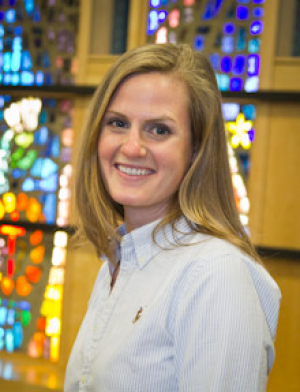
Mara Brecht, Ph.D. Assistant Professor of Theology St. Norbert College Teaching race is a boulder. And up the mountain I push it. When I teach race, I feel like Sisyphus because I never seem to get anywhere. The questions repeat and the anxieties recur each semester. It’s always the same: I know what parts of assigned texts will provoke students. I’m prepared for the discomfort, the tears, and the under-the-breath comments. I can even hear the conversations before they happen: White students indignantly protest Peggy McIntosh’s essay on white privilege: “But I had to earn what I have!” They respond...
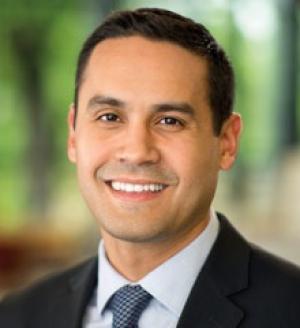
Eric D. Barreto The Onion is a paragon of satirical news. Unfortunately, too many of us are not in on the joke. Literally Unbelievable is a website that captures those priceless moments when beguiled individuals post “news” items from The Onion as if they were a reputable source of information...
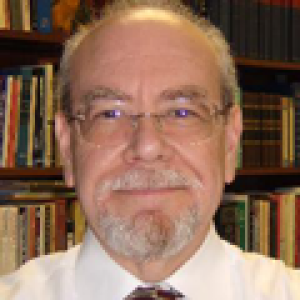
There are any number of reasons persons become theological school deans. Some reasons are personal, while some are a product of a particular context and its circumstance. In my experience, most deans answer the vocational calling of dean for good-intentioned...
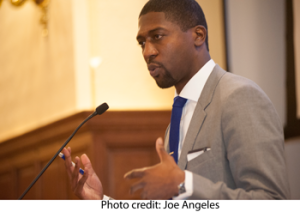
Lerone A. Martin, Ph.D. Assistant Professor of religion and politics in the John C. Danforth Center on Religion and Politics Washington University I have heard much talk about Ferguson and racial segregation in my personal life, as well as in the classroom. Conversations about Ferguson abound in my Civil Rights class this semester as well as in the broader university community. It could hardly be otherwise. We are just fifteen miles away from Canfield Drive. As a historian, I aim to help my students understand Ferguson, racial segregation, and all concomitant issues in a broader historical framework. How did we...
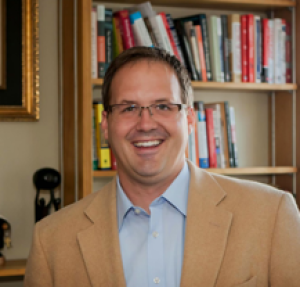
Kyle J. A. Small, Ph.D. Associate Academic Dean and Associate Professor for Church Leadership Western Theological Seminary The faculty at Western Theological Seminary (WTS) in Holland, MI recently invested itself in Willie James Jennings’ book, The Christian Imagination: Theology and the Origins of Race (Yale University Press, 2010). Three faculty members were invited to take up Jennings' claim and call, and to generate a conversation in terms of how Jennings’ work intersects with our shared task of teaching and learning. I engaged as a pastoral theologian wondering what are the pedagogical implications if we accept Jennings' book, on his own...
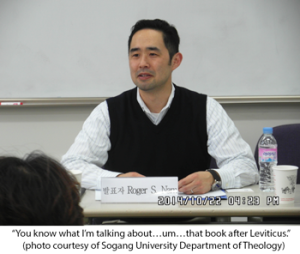
Roger Nam Full disclosure: I struggle with the Korean language. Although I completed an M.Div. degree in Seoul, Korean is still a second language to me. Through an odd combination of reading Korean theology books and listening to 1990s K-pop, I have a decent, albeit strange, vocabulary. But my Korean sentence construction...
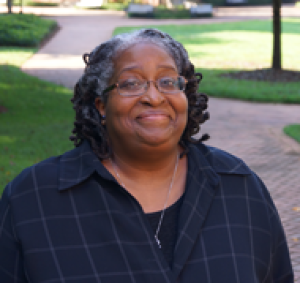
Marcia Y. Riggs, Ph.D. J. Erskine Love Professor of Christian Ethics Columbia Theological Seminary Why does an African American woman--a Womanist black liberationist religious ethicist-- in her right mind teach for twenty-three years in a historically white seminary in the South? I have asked myself this question many, many times, and most of those times in prayer on my knees to a God that I am sure is the “one that I have found in myself” and love fiercely (re: Ntozake Shange). There you have the answer: there is this call to teach that is the “fire in my bones”...
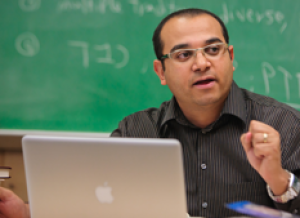
Nekeisha Alayna Alexis Coordinator Intercultural Competence and Undoing Racism Anabaptist Mennonite Biblical Seminary Safwat Marzouk Assistant Professor of Old Testament Anabaptist Mennonite Biblical Seminary Recent spates of lethal violence against people of color—and black men and women in particular— are devastating reminders of the high cost of unaddressed oppression. The race- and class-based killings of Mike Brown in Ferguson, Mo.; John Crawford in Beavercreek, Ohio; Eric Gardner in Staten Island, New York; and Renisha McBride in Dearborn Heights, Mich.; to name a few, undercut illusions of how close we are to a “post-racial” or just society. However, these tragedies must...

Deans understand that in a very real sense the curriculum is "the engine" that drives the seminary as an educational institution. Many elements and dynamics impact that educational engine, including entering student enrollment. Deans do well to work with their...
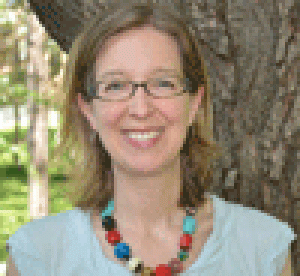
Kate Blanchard Maybe you’ve been here before. It’s the middle of the semester. Your undergraduate survey class has been rolling along fine. Students are fairly engaged, and you feel you have a good rapport. Then along comes the mid-term, and you realize that the situation is not what you thought....